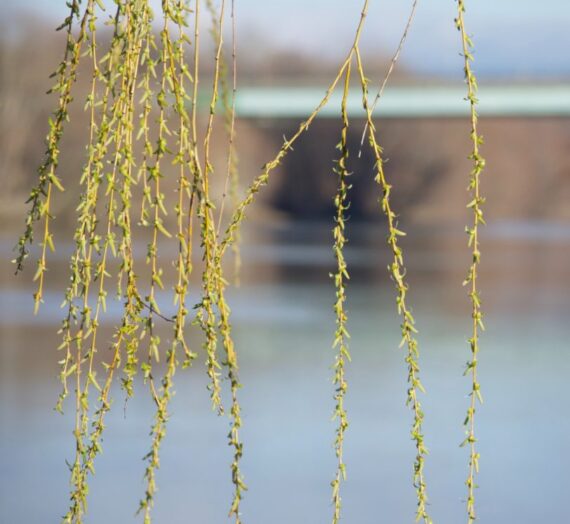 As I walked around the pond in Bushnell Park, I counted 84 dead fish and zero live ones. Obviously, I was only able to count the fish along the edges and outside of the pond, plus the pile of them in the middle (photo above). There is an abundance of trash in the pond, but that is not a new phenomenon there. Any guesses about the cause of this?
As I walked around the pond in Bushnell Park, I counted 84 dead fish and zero live ones. Obviously, I was only able to count the fish along the edges and outside of the pond, plus the pile of them in the middle (photo above). There is an abundance of trash in the pond, but that is not a new phenomenon there. Any guesses about the cause of this?

For the record, you can see the Photobucket album featuring photos of these. None of the pictures show the same fish twice, and as displeasing as it is to glance at dead animals of any kind, I think there is value in documentation.



Robin @ Bird In The Hand
And I bet it smells terrific!
Kerri Provost
We should bottle and sell that fragrance. Not.
Sick Fish
Maybe the abundance of snow and ice killed them. I don’t think the water is deep there. Or just no aeration to the water. They do need to be cleaned out—annually
baylah
A couple years ago, I found hundreds of dead fish along the perimeter of the Elizabeth Park pond. Why does this happen???
Kerri Provost
I’ve been told that my concerns were passed along to people in charge of the park. I don’t know if that means that I’ll get any answers, but hopefully they’ll figure out the cause and, if it’s something that can be fixed, make some changes.
This pond freezes over every year and I’ve never seen it like this before. At most I’ll see one dead fish floating along.
Richard
Once all the fish died in the 2 ponds behind our apartment building. Someone said it was because of the chemicals that were being used around the ponds. Don’t think that the city even plowed the parks sidewalks or put salt down this winter. But I wonder if the pond did freeze all the way to the mud and cut off the oxygen. We will have to wait for a report from the powers that be.
Let’s hope none of the christian crazies get a hold of the story as then they will try to blame us queers for the dead fish as they blamed us for the dead birds and fish in Arkansas. HA!
Chris
That’s really disturbing.
Someone from the DEP should walk across the park and take samples.
As for causes, I can only guess: Salt runoff? Diesel spill from the generators in December?
Kerri Provost
I’d start with looking at some of the things you pointed out. What was different this year than in previous ones? We get snow every year. The pond freezes every year. I know that this is the first time I stepped on a dead fish because I never expect them to be outside of the pond.
One guy walking by pronounced it an “epidemic.” I don’t think he was any kind of official.
I didn’t even know there were 84 fish in that pond to start with. Some ducks were there yesterday, and they didn’t appear to want anything to do with the dead fish.
Luis Cotto
I’m not a power that be, but I got this from the Parks Superintendent of the City.
1) We do not put any kind of chemicals in any of our ponds. The only pond with any sort of chemical exposure is the runoff from the golf course that seeps into the Goodwin Park Pond…but I’ve been told that it’s not a risk to the wildlife there.
2) I was told a possible explanation is this thing called winterkill. Winterkill is the result of a significant decline in oxygen during a long period of ice cover. As long as the pond is open or partially open, oxygen levels remain high. This is because diffusion of oxygen from the air and wind agitation add more oxygen to the water than is used for animal metabolism and plant decomposition. This is even true for those very sheltered ponds that receive very little exposure to wind.
When ice forms, neither wind nor diffusion from the air contribute oxygen to the water. The sole source of oxygen becomes the small amount produced by the few remaining algae and plants. If the ice remains thin and clear, oxygen production by plants and algae can continue as enough sunlight can filter through the ice to allow photosynthesis to occur. This production can nearly compensate for that which is used by respiration and decomposition that is continually ongoing. If the ice remains into mid-winter or thickens slightly, oxygen levels will begin to decline by 1-2 parts per million. This is because each day the pond plants and animals use slightly more oxygen than is produced. At this point, however, the pond still has sufficient oxygen.
A serious problem develops when ice persists into late winter and thickens considerably or worse yet, is covered by snow. This reduces the amount of sunlight reaching the plants and algae, thereby substantially reducing the amount of oxygen produced. Since metabolism and decomposition continue unabated, oxygen levels begin to drop and can approach levels that threaten fish survival. In cold water, oxygen levels less than 2-3 ppm for an extended time will begin to kill fish. If levels drop to 1-2 ppm or lower throughout the pond, a complete fish kill will result.
3) I’ve alerted the City via 311 to clean up the fishes.
Kerri Provost
I’m hoping that they still have the DEP look into this.
I saw that workers were fishing out the corpses this morning. When I walked by, there were many fish just piled on the edges of the pond. I’m wondering if someone is going to remove them later. The stench is awful.